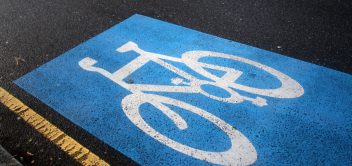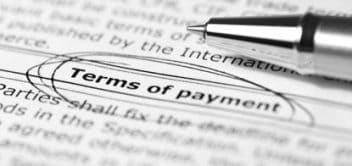Post Traumatic Stress Injury | We Can Help You
Post Traumatic Stress Claims (PTSD)
Generally people may suffer from PTSD after a car crash or a very traumatising accident and as a result can suffer long term emotional problems which are diagnosed as PTSD. Our expert personal injury solicitors at Synnott Lawline have many years experience dealing with the complex, challenging issues facing people suffering from a PTSD injury.
How to know if I can claim for PTSD
To be eligible to claim for Post traumatic Stress (PTSD) you need to have records indicating you have suffered a physical injury that resulted in emotional pain and suffering. PTSD is difficult to define and becomes apparent in different forms so it must be diagnosed based on the medical history of the victim and the occurrence of a traumatic event such as a car crash. If you believe you are suffering from PTSD as a result of an accident caused by another party and would like to pursue a PTSD claim, the first step to starting your claim is to provide us with the details about how and where the head injury occurred, and about the severity of injuries to the head. We will then assess your claim details and determine how successful your injury claim is expected to be.
-
What are the Physical Side Effects from PTSD?

- Drowsiness / Lethargy
- Headaches / Migraines
- Vomiting
- Loss of use of part of the body e.g. weak arm or leg
- Seizures
- Blurred Vision
- Bleeding from nose or ear
- Irregular breathing
-
What are the Emotional Effects from PTSD

The most common type of psychological injury suffered following an accident is Post Traumatic Stress Disorder (PTSD). According to Mental Health Ireland PTSD is a “reaction to exposure to a very stressful and traumatising event”. People suffering from PTSD will usually experience symptoms such as:
- Becoming emotionally numb
- Confusion
- Unusual behavior
- Difficulty speaking or being understood
- Becoming aggressive or violent
- Flashbacks to the traumatising event
- Panic attacks
- Nightmares
- Avoidance of situations related to the traumatic event
- Difficulty sleeping
- Outbursts of emotion
- Sweating
- Nausea
-
What are the Long Term Side Effects of PTSD?

PTSD can be a severe and long term mental health problem. Many people diagnosed with PTSD suffer from feelings of anxiety for years following the traumatic event. It is vital that anyone experiencing signs of PTSD obtains treatment from an appropriate expert such as a psychiatrist or psychologist.
-
Can I start a Claim for a Post Traumatic Stress Injury?

A person bringing a claim for a psychological injury will only be compensated if they are found to be suffering from a recognised psychiatric injury; it is not sufficient to show that they were suffering from grief, sorrow or emotional upset.
-
How long do I have to start my PTSD Claim?

You have two years from the date of your accident within which to make a claim after which time your case will become statute barred. If you have any legal questions or wish to start your claim, please do not hesitate to contact our dedicated and experienced team of solicitors who will be more than happy to talk you through the whole process and answer any questions that you may have. Contact us 7 days a week by Phone: 01 453 7890 Email: info@lawline.ie or fill out our Call Back Form.
-
McLoughlin v O’Brien – Nervous Shock

- The entitlement to claim for these types of injuries was first recognised in the English case of McLoughlin v O’Brien in 1983 which was followed in Ireland and re-stated in the Supreme Court in the case of Kelly v Hennessy in 1996. This case law set out the criteria that must be satisfied in order for a claimant to succeed in a case for PTSD or “nervous shock”.
- There must be a recognised psychiatric injury;
- The illness must be shock induced;
- The nervous shock complained of must have been caused by the acts or omissions of the defendant;
- The nervous shock must have been sustained due to an actual or apprehended physical injury, to either the claimant or to another person;
- Lastly, it must be established that the defendant owed a duty of care to the claimant not to cause a reasonably foreseeable injury.
This case law further established that a person may be entitled to recover damages for nervous shock where they came across the immediate aftermath of an accident, either at the scene of the accident or at the hospital if the accident involved a person with whom the claimant had a close personal relationship.
In the case of McLoughlin v O’Brien (1983) a woman had been told about an accident which had taken place an hour previously which involved her husband and children. This woman went to the hospital where she saw her dead daughter, seriously injured husband and other children in the same state they had been in at the scene of the accident. She later claimed that she was suffering with nervous shock as a result of seeing her family this way. The Court held that this was “sufficiently proximate” to the event in both time and place and she was entitled to recover damages for nervous shock.
- The entitlement to claim for these types of injuries was first recognised in the English case of McLoughlin v O’Brien in 1983 which was followed in Ireland and re-stated in the Supreme Court in the case of Kelly v Hennessy in 1996. This case law set out the criteria that must be satisfied in order for a claimant to succeed in a case for PTSD or “nervous shock”.
Are you suffering from a psychological injury as a result of an accident?
Our legal team at Synnott Lawline know that every person claiming for PTSD injury has specific needs that are essential to their individual circumstances. We are aware of the physical, psychological and emotional impact that Post traumatic stress injuries can have on the lives of people and their families so we also provide you with immediate access to the best rehabilitation support needed for your specific injury type. If you have any legal questions or wish to start your claim, please do not hesitate to contact our dedicated and experienced team of solicitors who will be more than happy to talk you through the whole process and answer any questions that you may have.
Injury Claims Services in Spanish and Portuguese
Synnott Lawline Personal Injury and Medical Negligence Claims
Our firm provides legal assistance to individuals who have suffered injuries due to the negligence or wrongdoing of another party. Our services encompass a wide range of actions, including investigating the circumstances of the accident, gathering evidence for your case, advising you on your legal rights and options, and negotiating with insurance companies to reach a fair settlement. If necessary, we will also represent you in court proceedings if a settlement cannot be achieved. We aim to ensure that your medical expenses, lost income, and compensation for pain and suffering are adequately addressed while navigating the complex legal landscape on your behalf. below is a list of some of our services. If you have a query on starting an injury claim, contact us today, we are her to help.
Personal Injury Claims
Road Accident Injury Claims
Medical Negligence Claims

Download Injury Claims Guide Booklet
Synnott Lawline Solicitors developed this compensation claims guide to give our clients an understanding of the personal injury claims process. Throughout your case we may make reference to sections in this guide. Topics include: The claims process, How to know if you have a case, Legal costs, Going to court, Statute of limitations, PIAB, Medical examinations and more.






































